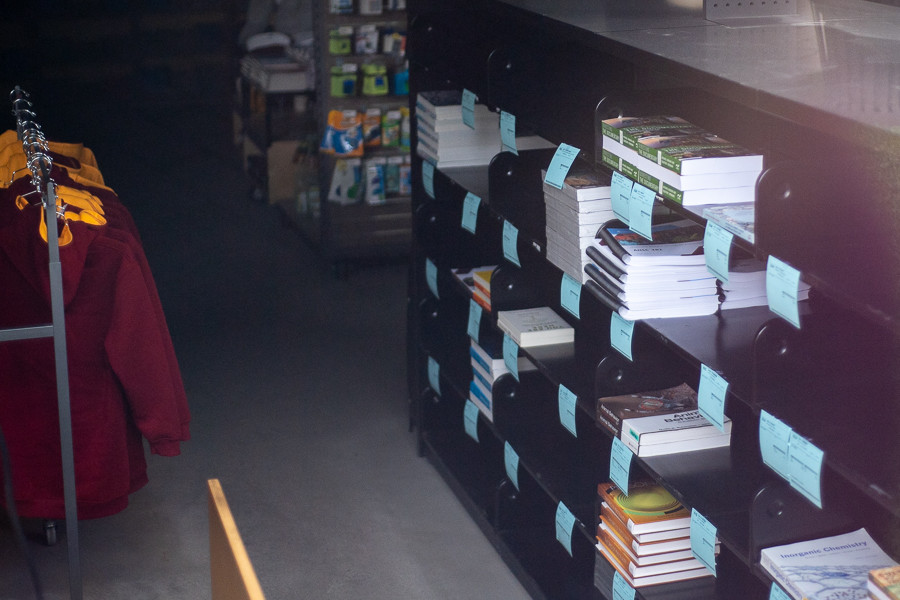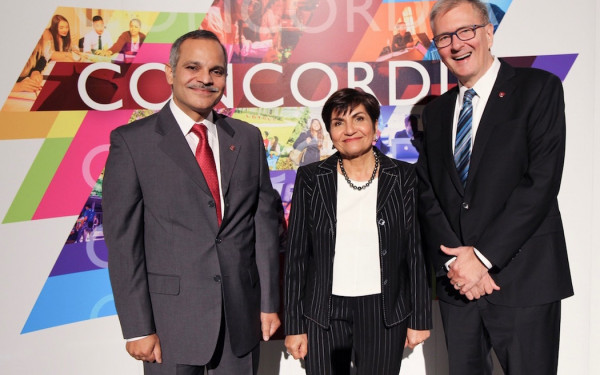Open Educational Resources: more accessible knowledge for all
Next-generation open-source textbooks brighten the future of education
Concordia University’s new website promoting Open Educational Resources launches on Jan. 27. OER aims to provide students easy access to cost-free educational resources like textbooks by democratizing education.
According to the Government of Canada, students spend up to $1,000 per school year on textbooks and latest editions. While it is possible to save money by purchasing used copies or the eBook version of the textbooks, these expenses remain a burden on many students’ budgets.
The main goal of OER is to provide teaching and learning materials on a public domain or under an open licence. Simply put, an open license allows for a no-cost access, use, and adaptation—such as translation of a text—of the material. It confers the redistribution right of the material to the public with limited restrictions or none at all.
Over the past decade, OER initiatives have started to gain popularity across Canada. The B.C. Open Textbook Project successfully launched in 2012 and has since saved students over $1.8 million. As a result, other Canadian provinces stepped forward in the direction of making OER visible online, including Quebec.
In 2017, UNESCO adopted the Ljubljana OER Action Plan which lobbied for the increased usage of OER across the world. The project was supported by delegates from 111 countries aimed at enforcing lifelong education for all. Qian Tang, the UNESCO Assistant Director for Education, expressed the crucial role of OER for students in remote and developing areas—especially girls and women—since the more conventional teaching methods such as physical textbooks and learning materials are not always accessible.
Concordia’s Scholarly Publishing Librarian Dr. Rachel Harris aims to make OER more available at Concordia University. She believes that the social justice angle of OER can reduce the economic inequalities resulting in part from the elevated costs associated with textbooks in higher education.
Harris explained that the path towards positive change involves “thinking critically about the pedagogical approaches, diversifying curricula, decentering Western Centric points of view, and increasing access to quality education.” This requires an increase in content diversity, and the openness of OER is an opportunity to gather academic knowledge from across the globe.
At Concordia University, six OER textbooks are available in marketing, management, and engineering. Eight forthcoming projects are in the works in the departments of engineering, education, applied human sciences, psychology and journalism.
Developing these projects demands a lot of work, time, and energy from a team of people. Faculty members can apply for grants to finance such projects. These grants are provided by the Library Student Fund, which gathers its funds by collecting $1 per course credit from Concordia undergraduate students.
Read more: Library services have improved in part to student effort
Three types of grants are available with differing levels of financial support. The Adopt grant—up to $1,000—aids those who found a pre-existing open-source textbook matching the needs of the project and only requires minor modifications. The Customize grant—up to $5,000—supports those who found an existing textbook that needs to be customized. A customized textbook is a remix of one or multiple pre-existing open-source textbooks. This includes changes like translating the material, changing the type of media in which the material is explained, or adapting the structure of the pre-existing textbook to match the course curriculum—it all depends on the needs of the project. Lastly, the Create grant—up to $10,000—helps those who will produce a new textbook from scratch.
Cristina Sanza—coordinator of the OER textbook for a final-year course in the journalism department—works with a team who was given a Create grant. The grant was used partially to hire students to work on the project. She explained that the idea behind the project stemmed from the “need to streamline the different topics within the journalism curriculum.”
Sanza points out that involving students currently enrolled in the program, as well as active teachers, in the creation of the textbook is tremendously helpful. They can more easily indicate the strengths and weaknesses of the current teaching methods. From the creation to the editing process, a lot of people are involved with the project, and a lot of back-and-forth between everyone is necessary to ensure a quality product.
OER is not a short-term project, as the work by faculty and students will impact future students. Even with an Adopt grant, it takes an exceptional amount of time and energy to produce quality textbooks that teachers and students can rely on for their education. Projects given a Create grant take even longer.The journalism textbook that Sanza’s team is working on was approved for the grant right before the pandemic, yet it is still under construction. A stronger OER will enrich the education of next-generation students and make it more accessible.
The need to talk about OER is becoming increasingly prevalent in an academic world where textbooks prices are continuously rising. Those involved in OER at Concordia believe students ought to voice their desire for an open-source education, as it would foster faculty enthusiasm regarding the subject. They believe the initiative will benefit future generations of students and teachers, while contributing to a future where equity is at the center of education.
If you are interested in Concordia’s OER, you can fill out this questionnaire.




_600_375_90_s_c1.jpg)

